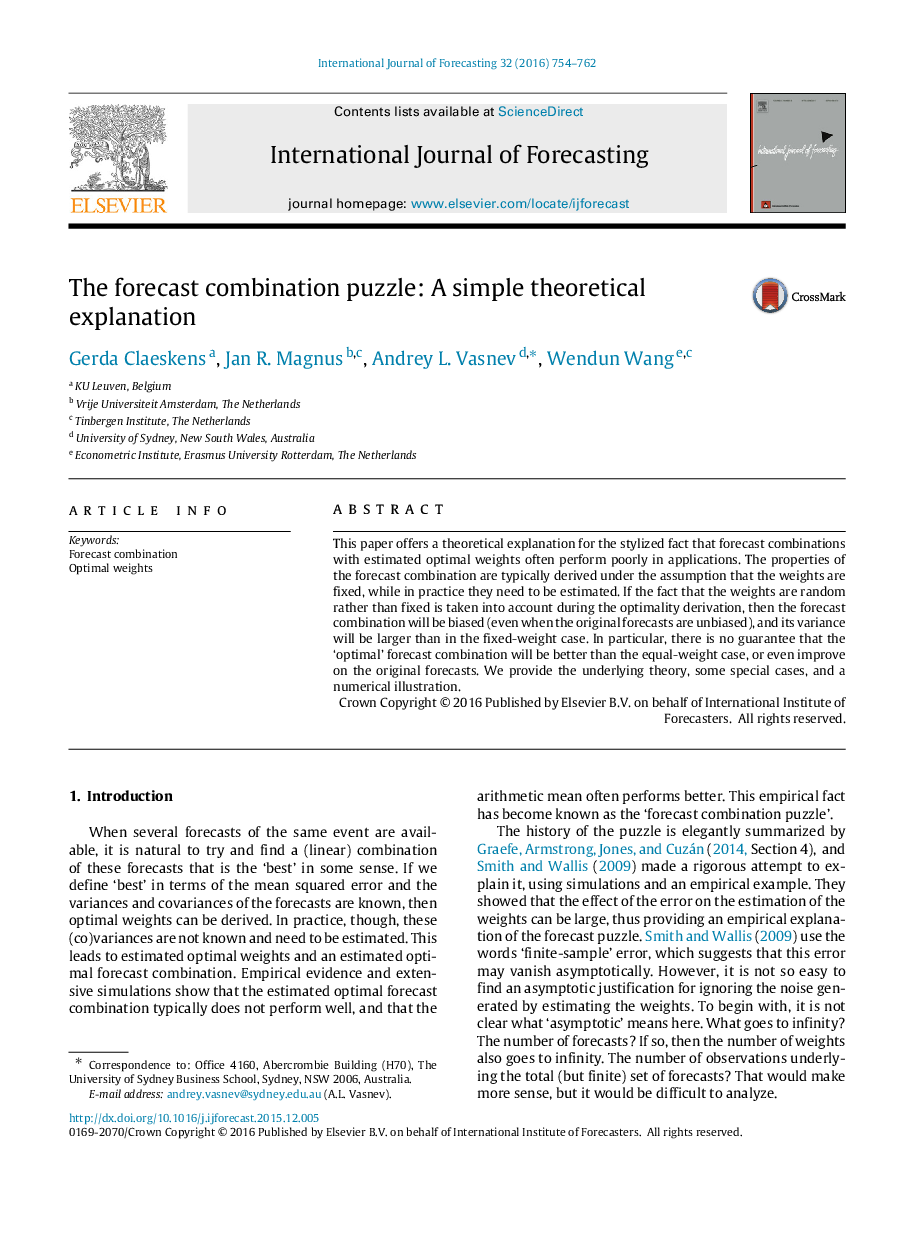| Article ID | Journal | Published Year | Pages | File Type |
|---|---|---|---|---|
| 7408172 | International Journal of Forecasting | 2016 | 9 Pages |
Abstract
This paper offers a theoretical explanation for the stylized fact that forecast combinations with estimated optimal weights often perform poorly in applications. The properties of the forecast combination are typically derived under the assumption that the weights are fixed, while in practice they need to be estimated. If the fact that the weights are random rather than fixed is taken into account during the optimality derivation, then the forecast combination will be biased (even when the original forecasts are unbiased), and its variance will be larger than in the fixed-weight case. In particular, there is no guarantee that the 'optimal' forecast combination will be better than the equal-weight case, or even improve on the original forecasts. We provide the underlying theory, some special cases, and a numerical illustration.
Keywords
Related Topics
Social Sciences and Humanities
Business, Management and Accounting
Business and International Management
Authors
Gerda Claeskens, Jan R. Magnus, Andrey L. Vasnev, Wendun Wang,
